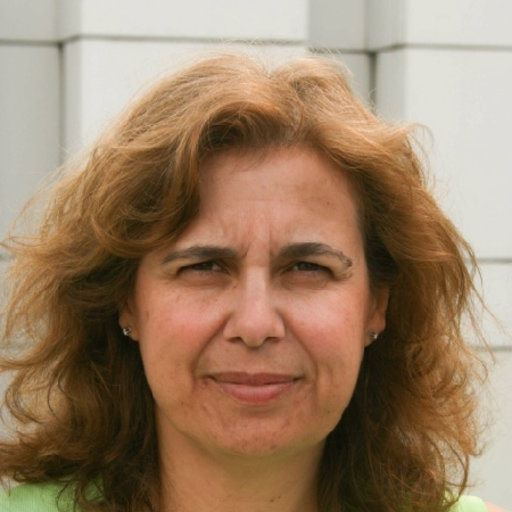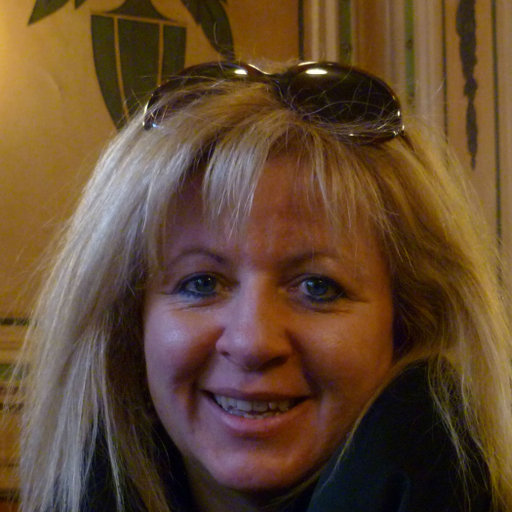
Eleftheria N. Gonida, Professor of Educational Psychology and Human Development, School of Psychology, AUTh
One of the session during the forum is titled “Inclusion in Higher Education: Promoting youth resilience and social understanding in the post-COVID Higher Education”. Why did you choose this topic?
We believe this is an extremely timely topic given the high uncertainty we currently experience worldwide including the disruption of education due to the pandemic. A large number of university students experience difficulties and obstacles during their studies nowadays and are at risk for falling behind successful adaptation and not completing higher education. At times of global change young people, especially those from disadvantaged socioeconomic backgrounds and those with migrant/refugee background, are more likely to lack basic skills (literacy, numeracy and digital competencies) as well as skills for self-directed learning. As a result, they are at risk for disengagement in education, poor academic outcomes, drop out, declined self-perceptions, mental health issues, future limited access to educational and work opportunities, life adversities and social exclusion. The main challenge, therefore, is how Higher Education institutions should meet students’ multiple needs (academic, personal, social, and emotional), especially the needs of the most vulnerable ones, and support them build their resilience to cope with adversities, challenging circumstances, life transitions and crises. Moreover, universities should contribute to the development of competencies required by the twenty-first century citizens to actively participate and contribute to their society, but also to social progress, peace, and sustainability. HE institutions need to move beyond the academic-cognitive focus and embrace a broad range of social, emotional and life skills into their curricula, teaching practices and support services, promoting the ‘whole-person’ education. This kind of education includes a broad range of competencies such as self-regulated learning, critical thinking, information seeking and evaluation, motivation and emotion regulation, open-mindedness and flexibility, creativity, communication skills and teamwork, intercultural understanding, and conflict resolution. In other words, HE institutions should become inclusive and caring communities and develop policies and concrete strategies to empower all their students.
Can you explain what will happen during the forum on the theme of inclusion? How have you planned to engage the EPICUR students?
Two sessions interconnected to each other have been scheduled around this theme, a workshop and an expert panel session. First, a workshop for students and by the students from all partner universities will discuss the theme in groups around a set of related questions. The workshop is titled “Listening to EPICUR students’ voices”. We expect students having the EPICUR experience (but not only, other students are also welcome) to discuss a number of issues such as how they perceive and understand the issue of inclusion, which groups they think are more likely to face exclusion risks in HE and why, which is the role of HE institutions and their own role in promoting inclusion, but also the main challenges for youth in the COVID-19 and post-COVID19 era, their needs, fears, and hopes, the role of innovation and technology in social understanding and inclusion etc. We are eager to listen to students’ reflections and further elaborate them in the expert panel session on the next day. Three international experts in the field will discuss the theme from a multi-disciplinary perspective bringing in their expertise. An EPICUR student representative will join the panel presenting a summary of the workshop which will be discussed by the panelists. An open discussion with the audience will follow. I would like to thank our invited panelists, Prof. Adar Ben-Eliyahu from Haifa University, Prof. Vassilis Kostakis, from Tallin and Harvard University, and Prof. Maria Daniella Marouda, from Panteion University, Athens, for accepting our invitation and for joining our enthusiasm for this forum theme. Many thanks also to the EPICUR students for their active engagement and participation. We would have never imagined such a forum theme without the students’ voices. At this point, I would like to encourage as many students from all partner universities as possible to join the forum and participate in the workshop and the expert panel. Colleagues from all partner universities, faculty members and administrators are most welcome, as well, to discuss timely and ‘hot’ issues, concerns and implementation ideas, but above all to share our care for our students and their future which is the future of our society.
Last but not least, I would like to thank our Vice-Rector of Academic and Student Affairs, Prof. Dimitris Koveos and Prof. Alexandros Triantafyllidis, School of Biology and EPICUR Communications officer, for their support, as well as my dear colleagues Prof. Domna Kakana, School of Early Childhood Education, and Prof. Christos Fragkonikolopoulos, School of Journalism & Mass Communications, for the great collaboration in organizing this thematic session for the EPICUR 2021 Forum.

Domna Kakana, Professor in Εducational Sciences, School of Early Childhood Education and Dean at Faculty of Education, Auth
Another issue to be discussed in this session, is peer-to-peer learning. What is the peer-to-peer approach (P2P) and why is it important?
According to Bruns (2016), peer-to-peer interaction describes an approach to interaction and collaboration between participants in a shared project or activity that is characterized by network-based organizational structures, a shared common resource base, and an assumption that all participants have the potential to make constructive contributions. Modern forms of P2P interaction are substantially inspired by, and often themselves utilize, online P2P communication technologies; however, the principles and ethics of P2P interaction have also been translated to offline contexts. P2P learning allows students who may be located very far from one another to build a global network. This also prepares students for the unique experience of working in a global community – a skill necessary for today’s professional culture. Peer education can take place in small groups or through individual contact and in a variety of settings: schools, universities, clubs, churches, workplaces, street settings, shelters, or wherever young people gather. A peer is a person who belongs to the same social group as another person or group. The social group may be based on age, sex, sexual orientation, occupation, socio-economic or health status, and other factors. Generally, peers are other people in a similar situation to each other who do not have a role in that situation as teacher or expert practitioner. They may have considerable experience and expertise, or they may have relatively little experience. They share the status of being fellow learners and they are accepted as such. Most importantly, they do not have power over each other by virtue of their position or responsibilities. It can be described as a way of moving beyond independent to interdependent or mutual learning.
‘Involving’ participants in a workshop in an active way that incorporates their own experience is essential. P2P approach is based upon an experiential learning model with interactive and collaborative techniques to gain knowledge. Indeed, it is the learners who, starting from different beliefs, information, and experiences, work on a problem without the intervention of a teacher. P2P learning allows students to work using new concepts and material with other individuals engaged in the same problem and provides them with opportunities to teach and be taught by one another, expanding their perspectives and fostering meaningful connections. In this context, peer learning is mutually beneficial since it involves the sharing of knowledge, ideas and experience among the participants.
The main idea is to involve Epicur’s students (and not only) in a workshop for students and by the students from all partner universities. All participant students will work in teams (participation and reflection) to discuss the challenges and potential solutions to specific issues around a set of related questions about the exclusion in a HE, the concept of inclusion and the role of HE. Each participant will be both a recipient and donor of knowledge. We expect participants to share their thoughts and concerns with their peers so bringing the peer to a deeper thinking, alternative ideas, and reflection to be evoked on the topics under discussion. This sharing of ideas on common global challenges will bring the students closer, enhance the feeling of belongingness to a global community with common goals and empower them to pursue actions towards the common good.
